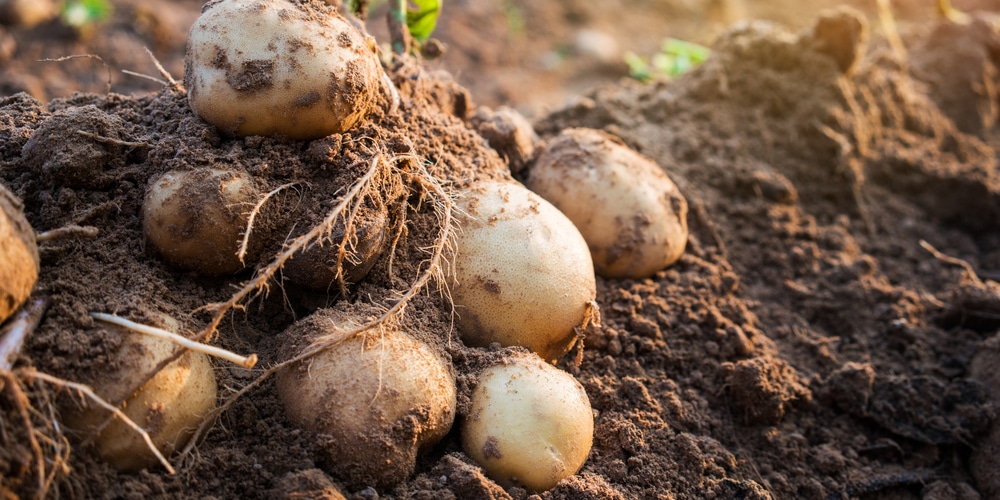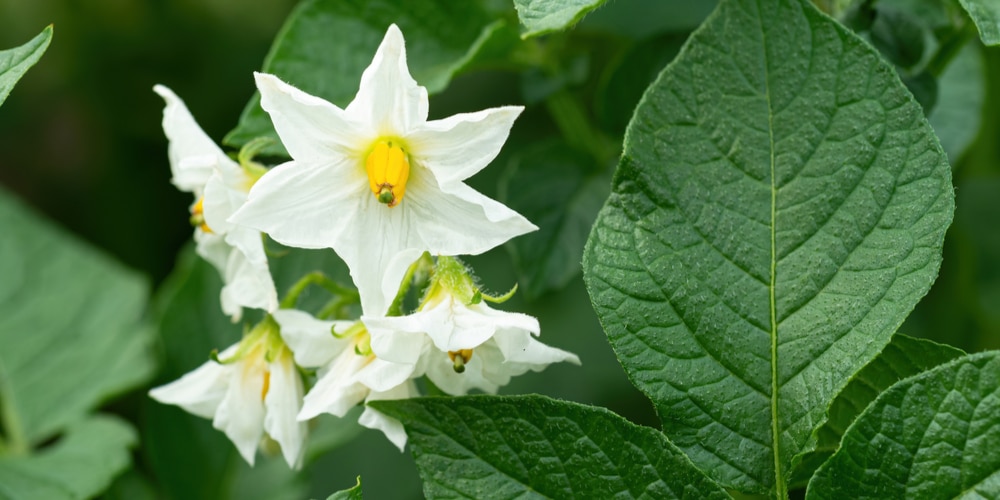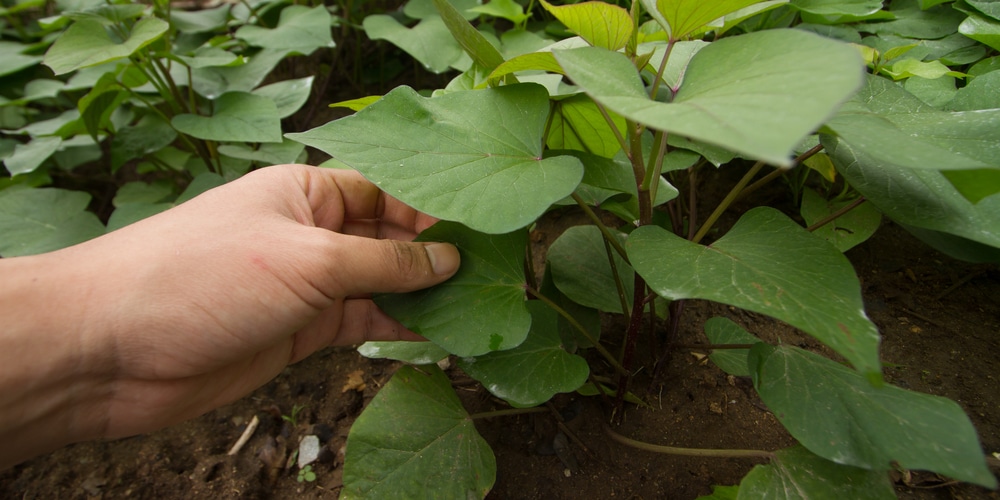Do potatoes need full sun? How much sun do potatoes need? Yes, potatoes need direct sunlight for growth. Some need at least eight hours of light to grow properly. There are different types of potatoes. When some require ample sunlight, others prefer dark or cold weather. They can grow in fall or spring.
The potatoes grow inside the soil. However, the leaves will need sunlight to deliver the required nutrients to the root. The nutrients will help tubers to develop fully. With more sunlight exposure, you can expect a better result. However, you will have to maintain the soil conditions. Both soil and sunlight are the contributing factors.
Potatoes will take months to get maturity. During the growing period, the intensity and angle of the sun will change. Hence, you will have to choose a spot that receives enough sunlight throughout the year. More is always better for potatoes. It is worth mentioning that the leaves of potatoes will need ample sunlight. But sunlight should not reach tubers. Sunlight can damage tubers and hamper their growth.
Do you want to know more about potatoes plants’ sunlight requirements? If yes, you can go through the following article. We will answer all your queries and enable you to grow potatoes in your garden.
Do Potatoes Need Full Sun or can I plant them in a shaded area?

As mentioned earlier, the requirements of all potatoes will not be the same. When some types need more than eight hours of full sunlight, others can grow with six hours of exposure. Therefore, you will have to ensure that your plant has access to a minimal amount of light per day. Otherwise, you cannot expect proper growth. In some conditions, you might not notice any difference in leaves. They might grow properly with inadequate sunlight. However, the tubers’ quantity and size might be less at the harvest time.
Tubers will be sizeable when the plant grows with adequate sunlight. However, if the size does not bother you much, you can consider planting your potatoes in a shaded area. Additionally, direct sunlight for extended hours might harm some potatoes. Full sunlight can dry out the soil and leaves. Hence, you will have to understand the potatoes types.
Signs your potato needs more sunlight exposure
If you are a new gardener, you might not be able to differentiate between excess and inadequate sunlight. However, you will have to look for signs to prevent further damage. Also, too much or too little sunlight can be detrimental to your plants. Here are some signs that indicate that your potatoes need less sunlight.
* Dry and light green leaves
* Brown and watery tubers
* Green and thin tubers
By observing the leaves, you can say your potatoes need more or less sunlight. If leaves are wilt, lighten, or dry, it indicates that your plant receives too much sunlight. When the leaves are dry, they cannot transport the required nutrients to tubers. Gradually, tubers will look thin and green. Also, tubers might appear brownish or watery to your touch. If you notice these signs, you can use shade cloth. It will protect your plant from the harsh sun and direct sunlight. Also, you will have to maintain the soil moisture. It will help to deal with extreme temperatures.
The tubers of potatoes will need protection from sunlight or any other artificial lights. Lights will generate the solanine toxin that makes your potatoes bitter. Also, this toxin can harm your body. If you ingest this toxin in a large quantity, it can be fatal. Hence, you will have to protect tubers from any lights. Tubers will appear green with sunlight exposure. You can avoid such a situation by covering tubers with dirt or other obstructions.
Also, you can hill the base of your potatoes plants. You can add more when the plant starts to flower. You can follow the same when tubers are in a growing phase. You will have to create a safe barrier between the root and the sun. If you do so, tubers will grow fast. Also, they will not develop green spots.
Apart from that, you will have to store potatoes in a dark and shaded space. Any sunlight exposure can damage potatoes. You should avoid eating potatoes with green spots.
Do Potatoes Need Full Sun?: Types of potatoes and their requirements
As stated earlier, all the types of potatoes will not require the same amount of sunlight. When white potatoes need more sunlight, the requirements for red potatoes will be minimal. Here are more details.
Red potatoes
You will not need direct sunlight for red potatoes. You can also grow them in partially shaded areas. However, you will have to ensure that your plants have sunlight exposure for six hours every day. Without six hours of sunlight, they cannot grow, and you will have to take care of the soil as well.
White potatoes
For white potatoes, the sunlight requirement will be more. These plants will need eight hours of direct or full sunlight every day. They might need some extra care during the initial period. You will have to cover some fresh leaves with soil. Otherwise, direct sunlight might damage leaves. Follow a simple rule and cover half leaves and leave another half to get sunlight. Once the leaves become six inches long, you can avoid covering them. After this period, they can survive in harsh sunlight.
Sweet potatoes
You can grow sweet potatoes in full sun. Yes, these plants will need eight hours of full sunlight every day. They are heat tolerant and can grow well in warm climates. Hence, you can avoid growing these plants in dark conditions.
While shopping for potatoes, you will have to understand the type. It is a must if you want proper growth. Check the packets to know the sunlight requirements. You can choose the one that can grow well in your garden. For example, if your garden gets adequate sunlight, you can go with sweet or white potatoes. For partially shaded areas, red potatoes are the best.
Do Potatoes Need Full Sun?: Final thoughts
Now you know how much sun potatoes need to grow in your garden. Potatoes will need a minimum of six to eight hours of sunlight based on the type. Find the right plant for your garden and protect tubers from sunlight.

